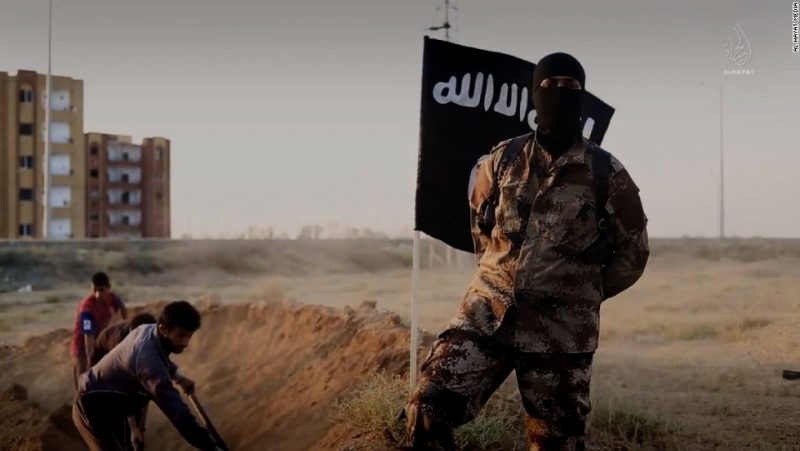
Photo courtesy of CNN.
Summary: There are now less than 1,000 ISIS fighters in Iraq and Syria.
On Tuesday, U.S. military officials said that under Trump’s presidency ISIS lost 98% of the territory it once held, according to Fox News.
Officials said that now less than 1,000 ISIS fighters are in Iraq and Syria. At a peak time two years ago, the number was almost 45,000.
Military intelligence said that the dwindling number was thanks to U.S.-led airstrikes and regional partners killing jihadists.
Retired Air Force Lt. Gen. David Deptula, the former head of U.S. Air Force intelligence, told Fox News that under President Barack Obama it was slower to get things done because of his administration’s “onerous” rules of engagement.
“The rules of engagement under the Obama administration were onerous. I mean what are we doing having individual target determination being conducted in the White House, which in some cases adds weeks and weeks,” said Deptula. “The limitations that were put on actually resulted in greater civilian casualties.”
Proponents of Obama pushed back on criticism that he did not do enough to beat the terrorist group.
“This was a top priority from the early days of ISIS gaining the type of territorial safe haven in particular, there was recognition that safe havens for terrorist groups can mean terrorist plots that extend — not just into the region — but to Europe and conceivably into the United States,” said Joshua Geltzer, author of “US Counter-Terrorism Strategy and al-Qaeda: Signalling and the Terrorist World-View.”
According to Fox News, ISIS at one point controlled an area in Syria and Iraq that was the size of Ohio. They are now relegated to a small section along the border of those two countries.
The United States has been fighting ISIS (The Islamic State) since 2014. The U.S. has had troops serve as advisors who have worked with the Iraqi and Syrian governments.
“Due to the commitment of the Coalition and the demonstrated competence of our partners in Iraq and Syria, there are estimated to be less than 1,000 ISIS terrorists in our combined joint area of operations, most of whom are being hunted down in the desert regions in eastern Syria and Western Iraq,” the U.S.-led coalition told Reuters.
While the coalition has cause to celebrate, it is still early. Military analysts told NBC News that ISIS will remain a threat in 2018.
“The war has yet to be won, and if it’s ever going to be won it’s going to take many more years, and many more civilians will lose their lives,” said Peter Vincent, a counterterrorism expert and former Department of Homeland Security official.















































